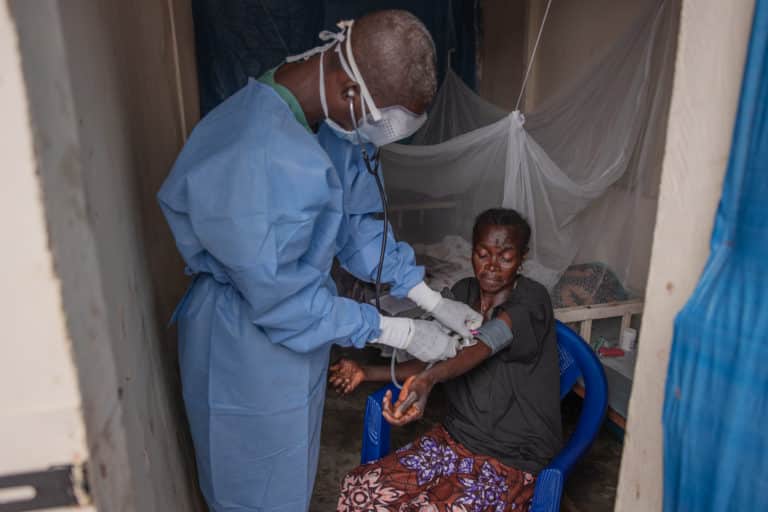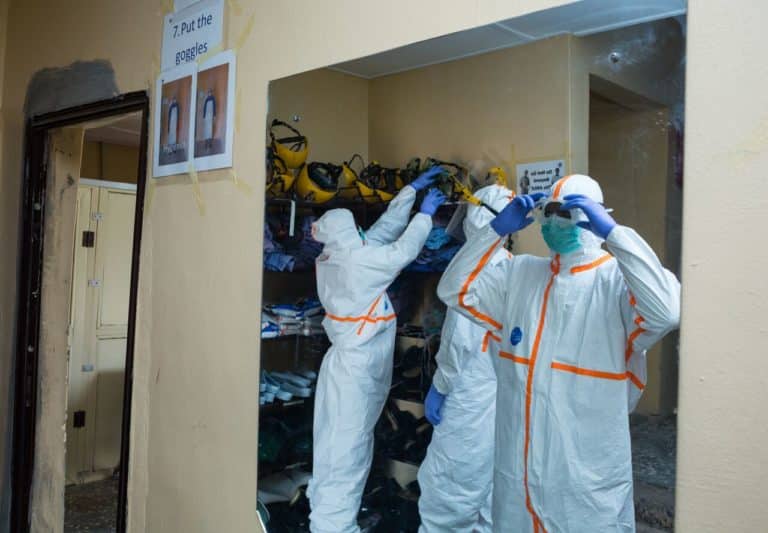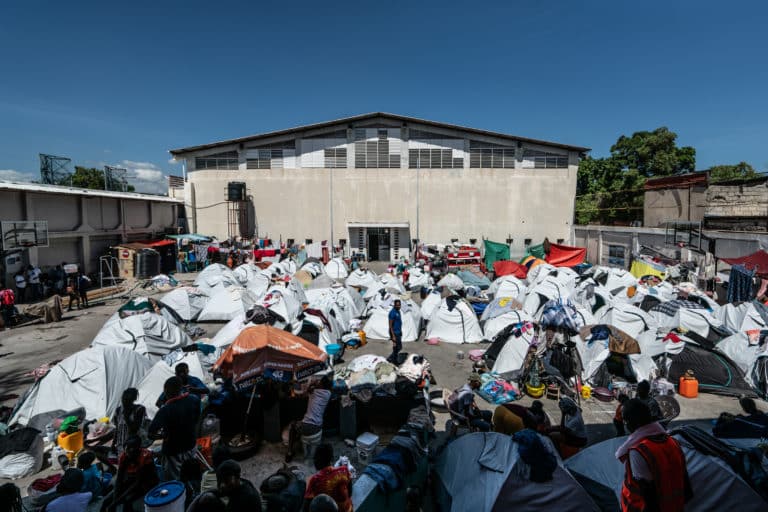Why is giving blood important?
Giving blood saves lives. Blood bags are unavailable in many African hospitals, so the patient’s family, already in distress, recruits a donor. When a child is teetering between life and death, however, we can’t wait. That child needs a transfusion immediately!
We estimate that 1% of the population will need blood each year. For example, in Nzérékoré Regional Hospital in Guinea needs nearly 6,000 blood bags per year. In 2015, however, the hospital collected only 2,071 bags. Nearly 75% of pediatric emergency patients have malaria, and most of those children need transfusions.
Hospitals have to screen donors, prepare blood bags, collect blood, and then test it. These procedures are quite challenging in countries with weak health facilities that lack the resources to function.
We also have to recognize that there is a cost to ensuring safe transfusions. Blood banks must be able to afford materials, tests, storage systems, donor recruitment, and other expenses.
At Nzérékoré, ALIMA has trained the medical staff to perform transfusions, implemented testing, and established a blood bank to respond to emergencies.
How can we encourage volunteers to give blood?
We educate the communities about the low risk of giving blood and encourage people to make a donation. We repeat this simple message: “Giving blood can save lives.” I feel that the medical profession has a moral duty to inform the population. We should also remind ourselves occasionally that giving blood is a voluntary act and donors don’t receive pay. Blood is a universal link that connects all human beings, and selling blood would violate medical ethics.
How can we improve transfusion safety?
We’re setting safe systems for supplying blood safely in each hospital where ALIMA works. These systems include training hospital staff, using high-quality tests, and establishing clear procedures for managing the blood supply in each institution.
Before giving blood, volunteer donors answer a series of questions to determine if they are eligible to donate. After collecting the blood, hospital staff conducts a series of analyses and tests to identify blood types (ABO and Rhesus factor) and screen for infections that are transmissible by transfusion (syphilis, hepatitis B and C, HIV).
Once a patient has received a full or partial transfusion, the blood donation can help prolong the life of patients suffering from fatal diseases.
Since July 2015, ALIMA has provided support to the Pediatric and Emergency Departments at Nzérékoré Regional Hospital. In January and April 2016, ALIMA launched community campaigns to promote blood donation in partnership with the Ministry of Health and local authorities. These campaigns to raise awareness led to 208 blood donations.



